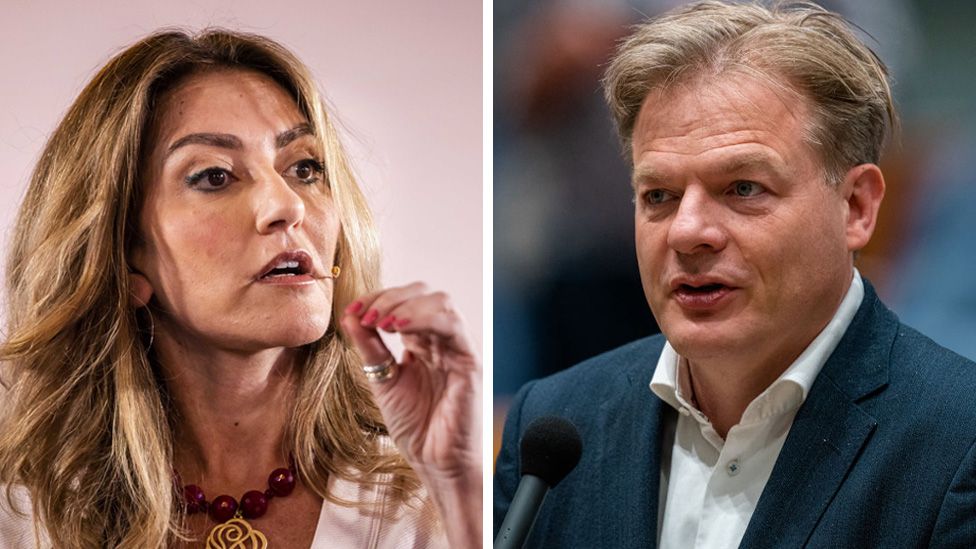-

-
-
Loading

Loading

The upcoming snap parliamentary election in the Netherlands signifies the start of a new era in Dutch politics. A party that was formed only three months ago is currently leading in the polls, and the country could potentially have its first female prime minister. The election, taking place on 22 November, was triggered by the collapse of Mark Rutte's government after he served as prime minister for 13 years. The election is being fought on a range of domestic crises, including the high cost of living, housing shortages, healthcare, and climate change. The leaders standing in this election are relatively new, including the two front-runners: Dilan Yeşilgöz and Pieter Omtzigt. Dilan Yeşilgöz, the new leader of Rutte's liberal-conservative VVD party, is widely expected to lead the country. Pieter Omtzigt, the leader of the centrist New Social Contract party, has gained popularity due to his role in exposing a welfare scandal in 2019. The election is highly unpredictable due to a significant proportion of floating voters deciding which parties should fill the 150 seats in the Dutch parliament. Up to 17 parties could potentially win seats, and forming a coalition government could be a lengthy process. Dilan Yeşilgöz has been running a successful campaign, presenting herself as a strong leader and focusing on renewal. She has adopted a tough stance on immigration despite her refugee background. Pieter Omtzigt, on the other hand, has focused on improving socio-economic security for Dutch households and changing the management culture of politics. One notable factor in this election is the potential for a coalition made up of center and right-wing parties. However, Omtzigt has ruled out working with populist leader Geert Wilders, who calls for a ban on mosques and Islamic schools. Other candidates include Frans Timmermans, who resigned as EU climate commissioner to lead the joint campaign by the Labour and GreenLeft parties, and Caroline van der Plas, the leader of the right-wing BBB Farmer-Citizen Movement. The election is also centered around key issues such as the housing shortage, rising cost of living, climate change, and healthcare. There is a high demand for affordable housing, and many Dutch citizens struggle to afford basic necessities. Climate change and healthcare costs are also major concerns among voters. Overall, the Dutch parliamentary election is expected to bring about significant changes in the country's political landscape, with a new party on the rise and the possibility of a female prime minister. The outcome remains uncertain due to the large number of floating voters and the potential for a multi-party coalition government.